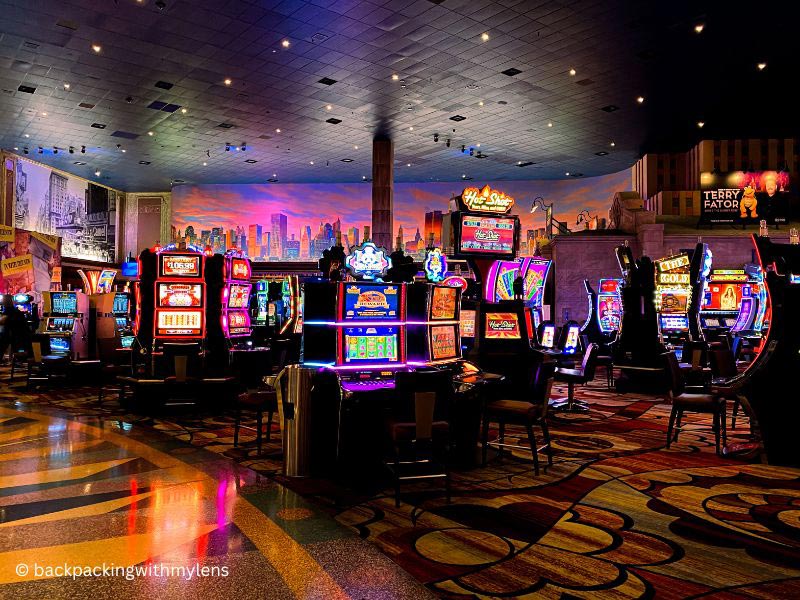Gambling in casinos has long been a subject of fascination and controversy, drawing in millions of players globally. With a mix of luck, strategy, and the thrill of uncertainty, casino games offer an exhilarating escape from everyday life. However, as entertainment becomes ever more accessible, it invites a more thorough examination of the ethical implications surrounding these games.
At the heart of the discussion lies the question of whether casinos promote safe gambling or take advantage of at-risk individuals. The appeal of potential winnings versus the truth of losses can create a challenging dynamic, and understanding this balance is essential for both players and operators. As we delve into the ethics of casino gaming, we will explore the responsibilities of casinos, the impact on society, and the steps that can be taken to foster a better gaming environment.
The Impact of Casino Gaming on Society
Gambling in casinos has a considerable influence on the community, affecting not only the financial landscape but also interpersonal dynamics and community structures. The income generated from casinos can lead to job creation and boost local economies, as they provide numerous employment opportunities in multiple fields including food and beverage, leisure activities, and retail. However, while the economic advantages can be significant, communities often struggle with the possible negative impacts that arise from increased gambling activity.
Additionally, the presence of casinos can lead to an increase in gambling addiction, presenting serious challenges for individuals and families. The thrill of casino games can quickly evolve into a compulsive habit, affecting connections with others and leading to financial instability. Many players may find it difficult with the loss of control over their gambling behaviors, resulting in a need for community support services and interventions to address this growing issue. The social cost of gambling addiction can ripple through families and neighborhoods, creating an urgent need for sensible gambling approaches.
In addition to the economic and social consequences, casino gaming often showcases cultural attitudes towards risk and entertainment. It can encourage a sense of excitement and leisure, attracting visitors and boosting local travel. However, this allure may also conceal the wider implications of gambling as a form of entertainment, provoking ethical questions about its promotion and accessibility. 789win As communities weigh the benefits and drawbacks of casino gaming, the need for sensible approaches and regulation becomes increasingly critical in ensuring that the positive aspects are maximized while minimizing the potential harms.

Ethical Concerns in Gambling Practices
The morality of casino operations often revolve around the potential for addiction and its consequences on people and families. https://789win.dental/ Betting can lead to significant monetary distress, impacting not only the betters but also their families. As people become caught in the appeal of winning, many lose sight of their financial limits, which can result in catastrophic outcomes such as bankruptcy. This poses ethical questions about the duty of casinos in promoting responsible gambling habits and offering support for those who may be struggling with betting addiction.
Another critical issue is the promotion of betting to vulnerable groups. Gambling establishments often aim at low-income individuals or communities with the promise of quick rewards, which can perpetuate patterns of poverty and despair. In this situation, the ethics of advertising strategies used by gambling establishments come under scrutiny, as they may take advantage of the need of people seeking an escape from financial hardships. This manipulation raises ethical questions about the honesty of the betting industry and its obligation to safeguard its most at-risk patrons.
Additionally, the impact of casino gaming on society as a entirety cannot be overlooked. While some argue that gambling establishments create jobs and boost local economies, others point to the community costs associated with dysfunctional betting, increased criminal rates, and a burden on public services. Balancing financial advantages with the potential for community issues presents a complex moral dilemma for policymakers and gambling operators alike. The challenge lies in discovering a responsible approach that takes into account the well-being of individuals and communities while still allowing for the pleasure of casino gaming.
Regulation Framework and Duties
The regulatory system pertaining to gaming games is created to ensure justice, integrity, and participant protection. Various government agencies and casino commissions create and apply regulations that dictate how gambling games operate, the standards for game creation, and the processes for handling rewards. These regulations vary by jurisdiction but typically involve licensing requirements for businesses and stringent measures to avoid fraud and fraud.
In addition to oversight bodies, gaming businesses bear considerable duty in preserving ethical standards within their facilities. They must adopt responsible player practices that promote gambler safety and education, including providing self-ban options and offering information about the dangers connected to betting. Casinos are also accountable for educating staff to spot signs of compulsive betting and know the appropriate measures to assist visitors in need.
Additionally, transparency in gaming operations is vital for building and preserving public faith. Operators should present clear details about the probabilities of games, advertising deals, and any related hazards. By creating an environment of transparency and accountability, operators can help mitigate the possible harmful impact of gambling while boosting the complete gambling experience for all participants.